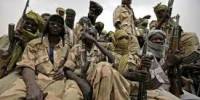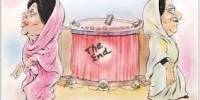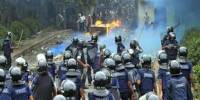Introduction:
State in the final analysis is a unique setup of diversified institutions, and political parties stand central to them. Political party is a significant and vital institution like any other institutions of the country. Without the party system, the state has no elasticity or true self-determination. But political parties must first develop as effective institutions for a proper functioning of democracy. As such, every society must have a political system with a basic framework that incorporates the totality of institutions and institutional arrangements working as the tools for the exercise of political power. (palambara, 1974) In flourishing democracy like Bangladesh input institutions like political parties, mass media, pressure groups and so on, and authoritative institutions like governmental organs, civil-military bureaucracy, loyal authorities play vital roles.
Fact, however, lies that here most of these institutions have been seeing dysfunctional effects on them despite being in an apparently democratic period of more than a decade. It is not, however, a pragmatic suggestion that in a new democracy, like Bangladesh.[1] In the absence of institutionalization, the ruling government’s fall is accelerated.
For the lack of institutionalization the parties break into sub-parties which engenders inter-conflict.(Duverger M, 1979) The continuous political violence among political parties that characterizes Bangladeshi politics raises the question of political instability, which may threaten the emerging democracy even may destabilize the foundation of democracy.[2] The shortcoming and failures of the party system in Bangladesh may quite meaningfully be analyzed from an institutional approach. Before analyzing at first we have to concern about ‘party’, concept of ‘institution’ and ‘institutionalization’.
Political party:
The party and the party system are the inevitable necessities of a modern state. A political party is a group of citizens more or less organized, who act as a political unit and who, by the use of their voting power, aim to control the government, and carry out of their general politics.According to Bentley, “the governmental process is the interaction of contending groups.”4Similarly, Schumpeter says- “A party is a group whose members propose to act in the competitive struggle for political power.”In fact, the concerted groups are not only to preserve the interest of their own but also the fate of all classes of people depend on them.Therefore, the group should have reflection of socialization and institutionalization.
Actually parties are the vehicles for recruiting political leaders, structuring people’s choices and formulating policies. A necessary element of a strong party system is that the parties be institutionalized (Dix,1994; Huntington,1991; Mainwaring,1992; Mainwaring and Scully 1995). Needless to say that the political parties of Bangladesh do not possess the above mentioned characteristics.
Political parties are not involved in politics merely in the gross sense of it. Though Bangladesh is abundant in natural resources and man power, the country cannot achieve modernization and development because of proper institutionalization of political parties.(Rahaman M, 1973) The formation of the government and the opposition is the inevitable necessity in democracy based on institutionalization. As a political institution the failure of ruling party can be explained in term of its lack of institutionalization. The fall of Awami League (AL), Jatiya Party (JP), and Bangladesh Nationalist Party (BNP), respectively in 1975,1990 and 1996 are the brilliant examples. Therefore, to ensure democratic process and political stability in Bangladesh, the need for institutionalization of political parties cannot be over-emphasized.
Conceptualizing Institutions:
For many social scientists institutions are organizations, which embody, foster and protect normative relationship and action patterns and perform functions and services which are valued in the social environment ( Blaise 1969). Roger Scruton talks about four important features of institution.(D. Bellin Allan Bullock)Firstly, institution contains members but they are not identical with any member. Secondly, institutions have “independent” agency, and some times personality. “Institutions might have “ right and obligations that do not belong to any member .
Thirdly, institutions may endure beyond the life of any particular member and its history is different from the history of its members. Fourthly, institutions manifest their members. Roger Scruton remarks that institutions may or may not have a constitution; they may or may not have rules, laws and conventions; they may or may not be automous. (D. Bellin Allan Bullock) The value of institution depends on the institutionalization of it. A simple political community may have a purely ethnic, religious, or occupational base and will have little need for highly developed political institutions. In a complex society community is produced by political action and maintained by political institutions.
Historically, political institutions have emerged out of the interaction among and disagreement among social forces, and the gradual development of procedures and organizational devices for resolving those disagreements.(Huntington, 1968) So at last we can say about institution that ‘a group of people work under some rules and regulations to gain some goals is called institution or a institution is a policy making organ’.
What is institutionalization?
Alphabetical meaning of institutionalization refers to the conduct of a particular organizations and procedures. Institutionalization is the process by which organization and procedures acquire value and stability. (Huntington, 1968) Thus an institution or organization achieves strength which is the guiding force behind it. Samual P. Huntington evaluates the institutionalization as the strength of an organization. (Huntington, 1968) It makes the organization more than simply an instrument to achieve certain purposes. (Huntington, 1968) An institution may achieve unthinkable public support through an expected level of institutionalization according to Huntington. (Huntington, 1968) Actually the a party is conducted through institutionalization the more it sustains in power politically.
On the other hand, the more a party is democratic, the more it is institutionalized. To run the party according to the constitutional procedure and abide by the respective constitution of the party is institutionalization. No political party of our country has satisfied the condition of institutionalization. The people, therefore, have withdrawn their support tome to time from any particular party. According to Huntington political institutionalization can be measured by a political system’s capacity to-
- regulate its citizens,
- response flexibly to its citizen’s demands,
- distribute resources efficiently,
- adopt to changing circumstances,
- ensure consistent pattern of internal organization,
- ensure orderly succession of leadership,
- ensure mass participation and mobilization,
- exist orderly competition for power. (Huntington, 1968)
However, party institutionalization can be achieved through gradual process of evolution.
Conceptual Framework of Institutionalization:
To explain the level of institutionalization of any political system the following features must be taken into consideration. However, the institutionalization of any political system can define by the adaptability, complexity, autonomy and coherence of it.23 We can adopt these features as an excellent conceptual frame work to understand and analyze the problems of institutionalization of the major parties in Bangladesh.
- Adaptability: The degree of adaptability endorses and institution how institutionalized it is. It refers to the function of the governmental challenge and age. The more challenges that have arisen in its environment and the greater its age, the more adaptable it is. (Huntington, 1968) Success in adapting to one environmental challenge paves the way for successful adaptation to subsequent environmental challenges. (Huntington, 1968)
- Chronological Existence: Longer existence persuades the level of institutionalization of an organization. The older an organization is, the more likely it is to continue to exist through any specified future time period. (Huntington, 1968) An organization, in fact, is some times endorsed by how longer time it exists.
- Generational age: The more the organization has surmounted the problem of peaceful succession and replaced one set of leaders by another, the more institutionalized it is. (Huntington, 1968) Between the two generations, there may happen the variation of experiences to which an organization must pay heed for successful institutionalization.
- Organization’s Function: An organization which has survived several changes in its principal functions is expected to be highly institutionalized. Functional adaptability, not functional specificity is the true measure of a highly developed organization. (Huntington, 1968)
- Complexity: Complex function of an organization offers it a transcendent level of institutionalization. Complexity simply refers to the multiplication of organizational sub-units and differentiation of separate types organizational sub-units. The greater the number and variety of sub-units, the greater the ability of the organization to secure and maintain the loyalties of its members.(Huntington, 1968)Modernization process comes as a threat to the relatively primitive and traditional political system. Nevertheless, complexity of the system helps it to adjust to the modernization process.
- Autonomy: Autonomy refers to the extent to which political organizations exist independently of other social groupings and methods of behavior. Political organizations in a highly developed system, are free from the impact of non-political groups. Political institutionalization, in the sense of autonomy, means the development of political organizations that are not simply expression of interests of particular social groups. (Huntington, 1968)
- Coherence: A vital measure of the level of institutionalization is the coherence of the organization. An effective organization requires, at a minimum, substantial consensus on the functional boundaries. (Huntington, 1968) Non-participants, however, do not have to share the consensus. (Huntington, 1968)
Lack of Institutionalization of the Political Parties in Bangladesh:
Meanwhile we have developed a conceptual framework from the theoretical point of view of institutionalization. Hence I would like to analyze the lack of institutionalization of the political parties in Bangladesh by using this framework. A recent information flashed by the election commission shows that there exist 119 political parties in Bangladesh. This multiplicity of political parties clarifies that large and relatively older political have not achieved institutionalization. As a result ‘signboard’ political parties emerged in Bangladesh.
The establishment of democracy in Bangladesh has opened up opportunities for participation in the political process. As Huntington (1968) has remarked, the demand for wider participation must be followed by institutionalization. He concludes that an imbalance between participation and institutionalization will cause political instability and decay. Institutionalized parties are characterized by a consistent pattern of internal organization, an orderly succession of leaders, mass mobilization and orderly and institutionalized competition for power. An institutionalized party has a routine election calendar and consistent election rules, which govern the winners and losers. According to Huntington there are mainly four indicators to measure for party institutionalization are- adaptability, complexity, autonomy and coherence. On the other hand, Mainwaring and scully (1992) suggest that party institutionalization be measured by the rules of inter-party competition, the development of social support for parties, and emphasis on elections as the means for selecting rulers and internal organization of parties. Another indicator I would like to add to measure party institutionalization is the level of violence among the parties.
Lack of Institutionalization of party system in Bangladesh may be summed up in the following way-
Rigidity:
Rigidity in the party makes it far from the demand of the time. AL BNP, or JP could not adapt to the peoples demand in different instances, which led them to the subsequent failures and ultimately abdication. The rigidity of AL (1972-75) took shape in the formation of BAKSAL, Rokhyi Bahinee and secularization of the constitution mainly because these were not adaptable to the contemporary time. The rigidity of BNP regarding the caretaker government was one of the vital causes of its fall. Jatiya Party did not pay heed to the people demand regarding a free and fair election. Infact, the less adaptable and more rigid a party is the lower its level of institutionalization.
Simplicity of formation:
The simplest political system is that which depends on one individual. Aristotle pointed out Tyrannies are Virtually all “quite short lived” 97 Political parties of Bangladesh do not have sufficient subunit for the welfare of the people at the grassroots level; rather they are busy to implement the single-man order.
Sub-ordination:
While the parties remain subordinate to any external or internal forces the institutionalization in it is mere a utopian dream. Political parties of Bangladesh are captive to a number of loan defaulters, smugglers and other internal social forces. Political institutors are always vulnerable to non-political influences. On the other hand, the more foreign sanctions are received, the more the government is subordination to the donor authorities.
Disunity:
The grater the disunity of the organization, the less it is institutionalized. AL, BNP and JP have more or less the experience to be vulnerable to inter conflicts.
Lack of democratization and socialization:
Democracy is the life of an organization except which gradual success of any organization is beyond expectation. Direct democracy is under which the people rule themselves by themselves with not medication, deputation or representation. Political activities proceed through the socialization of the parties. In this instance, ideology, value faith the honesty, unity and above all morality of the political parties contribute a lot. It in fact, exits hardly in our political system.
Lack of consensus:
In any burning question facing the nation, the inter party or intra-party consensus is not available. The issue of caretaker government led to the continuous non-co-operation movement which obstructed the on-going development of the country and tarnished the glory of the nation to the international community.
Hereditary control of Power:
There exists a disguised arbitrary government in Bangladesh in the form of democracy. Hereditary control of power is the common feature of this sub continent. So the parties do not possess institutionalization, Dynastic rule continues in Bangladesh even to-day.
Leadership Crisis:
It’s the common problem faced by all political parties in today’s context. Such stable and ideal leadership as can overcome the narrow party-interest has not evolved in this country. Jatiya Party created ignoble example of abandonment. Ershad was portrayed by tine opposition and media as a corrupt person with a great weakness for money and woman. Her made no attempt to restrain himself from these habits which he had pressed even before he assumed power. Besides, AL has failed miserably in the post independence period to lead the national. Sheikh Mujib created a country which he could not govern due to lack of statesmanship and creative leadership.
Corruption, nepotism and partisan:
Limitless corruption, partisanship and nepotism have led the country to an uncertain future. The parties, therefore, cannot achieve sustainable support of the people. All successive governments formed in Bangladesh offered undue privileges and financial benefits to their party supporters and party activists. Most of the activities, then default in repaying loans and interests.
Conclusion:
The political party is a social group a system of meaningful and patterned activity within the larger society. The purpose of political party is to modernize and develop the country by enriching the quality of life of its members. The party is thus one social organism. But the party is also a polity, a miniature political system, and it has an authority structure. On the other hand, modern political scientists have identified political parties as leading agent of modernization. A political party or groups of parties ultimately govern the state. Institutional9izaiton is the precondition to political stability. Already it has been mentioned that political development and stability of a country also correlated with the party system and the n nature of political parties in the country. Since the emergence of political parties of Bangladesh no initiative was taken to acquire institionalizaiton. The immediate goal of the major political parties in Bangladesh is to capture political power by disregarding democratic norms or values. This involves the parties in inter-p[arty the state and society. With the exercise of this process, no party can win the hearts of the people. So no government here is stable. In the political arena of Bangladesh today’s urgent need is to flourish democratic value. To sustain in power, the parties have no alternative except being institutionalized. Hence a political party needs to cultivate reciprocal tolerance, consensus on national issues mutual respect and accommodation for making democracy work and strengthening democratic political institutions. So, what is needed in Bangldesh by borrowing the ideals of Dewey (1927) we can say is the improvement of the methods and conditions of debate, discussion and persuasion.
















